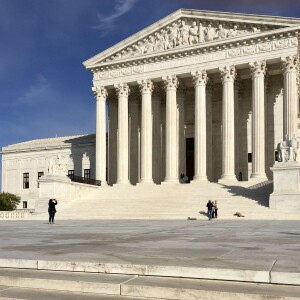
Lindke v. Freed (Public Official Social Media)
 2024-03-19
2024-03-19
James Freed, like countless other Americans, created a private Facebook profile sometime before 2008. He eventually converted his profile to a public “page,” meaning that anyone could see and comment on his posts. In 2014, Freed updated his Facebook page to reflect that he was appointed city manager of Port Huron, Michigan, describing himself as “Daddy to Lucy, Husband to Jessie and City Manager, Chief Administrative Officer for the citizens of Port Huron, MI.” Freed continued to operate his Facebook page himself and continued to post prolifically (and primarily) about his personal life. Freed also posted information related to his job, such as highlighting communications from other city officials and soliciting feedback from the public on issues of concern. Freed often responded to comments on his posts, including those left by city residents with inquiries about community matters. He occasionally deleted comments that he considered “derogatory” or “stupid.” After the COVID–19 pandemic began, Freed posted about it. Some posts were personal, and some contained information related to his job. Facebook user Kevin Lindke commented on some of Freed’s posts, unequivocally expressing his displeasure with the city’s approach to the pandemic. Initially, Freed deleted Lindke’s comments; ultimately, he blocked him from commenting at all. Lindke sued Freed under 42 U. S. C. §1983, alleging that Freed had violated his First Amendment rights. As Lindke saw it, he had the right to comment on Freed’s Facebook page because it was a public forum. The District Court determined that because Freed managed his Facebook page in his private capacity, and because only state action can give rise to liability under §1983, Lindke’s claim failed. The Sixth Circuit affirmed. Held: A public official who prevents someone from commenting on the official’s social-media page engages in state action under §1983 only if the official both (1) possessed actual authority to speak on the State’s behalf on a particular matter, and (2) purported to exercise that authority when speaking in the relevant social-media posts. Pp. 5–15.
BARRETT, J., delivered the opinion for a unanimous Court.
Read by Jeff Barnum.
More Episodes
 2018-05-14
2018-05-14
 2018-05-14
2018-05-14
 2018-04-24
2018-04-24
 2018-04-17
2018-04-17
 2018-04-17
2018-04-17
 2018-04-02
2018-04-02
 2018-04-02
2018-04-02
 2018-03-21
2018-03-21
 2018-03-21
2018-03-21
 2018-03-05
2018-03-05
 2018-02-27
2018-02-27
 2018-02-27
2018-02-27
 2018-02-27
2018-02-27
 2018-02-21
2018-02-21
Create your
podcast in
minutes
- Full-featured podcast site
- Unlimited storage and bandwidth
- Comprehensive podcast stats
- Distribute to Apple Podcasts, Spotify, and more
- Make money with your podcast
It is Free
- Privacy Policy
- Cookie Policy
- Terms of Use
- Consent Preferences
- Copyright © 2015-2024 Podbean.com




